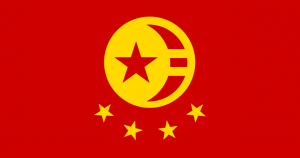Language/Yue-chinese/Vocabulary/Basic-Greetings
| Next Lesson — Introducing Yourself ▶️ |
Introducing Basic Greetings in Yue Chinese
One of the most important things to learn when starting to study a new language is basic greetings. In Yue Chinese, there are a variety of ways to greet people, depending on the time of day and the level of formality. In this lesson, we will cover the most common basic greetings that you will use when speaking to someone for the first time.
Saying Hello
The most basic greeting in Yue Chinese is "你好" (néih hóu), which means "hello." As a beginner, you can use this greeting in almost any situation where you want to greet someone. It's important to pay attention to the tone of your voice when saying "你好" (néih hóu) in Yue Chinese, as the rising tone on "你" (néi) is essential when pronouncing the phrase.
If you want to be more casual, you can use "嗨" (hói), which is roughly equivalent to "hey" in English. It's important to note that "嗨" (hói) is less formal than "你好" (néih hóu), so you should use it with caution, especially when meeting someone for the first time.
Greetings for Different Times of Day
In Yue Chinese, there are different greetings for different times of day. Let's explore some of the most common ones:
Good Morning
If it's before noon, you can use the greeting "早晨好" (jóu sàhn hóu) or "早上好" (jóu sēung hóu) to say "good morning." Both greetings have the same meaning, so you can use them interchangeably. However, be aware that "早晨好" (jóu sàhn hóu) is less common, especially in urban areas.
Good Afternoon
If it's between noon and early evening, you can use the greeting "午安" (ng5 ōn1) to say "good afternoon." This greeting is not commonly used in modern urban areas, but it is still used in more traditional settings.
Good Night
When saying "good night" in Yue Chinese, you can use the greeting "晚安" (maahn ōn) . This works in both formal and informal settings.
Formal and Informal Greetings
Another factor to consider is the level of formality when greeting someone. In general, when you are meeting someone for the first time or addressing someone who is older or in a more senior position than you are, you should use a more formal greeting. On the other hand, when you are greeting someone of the same age or someone you are familiar with, it's safe to use a more informal greeting.
Here are some examples of formal and informal greetings:
Formal Greetings
- "您好" (néih hóu) – This is a more respectful way of saying "hello" and is commonly used in formal settings.
- "早上好" (jóu sēung hóu) – A more respectful way to say "good morning."
- "晚上好" (maahn sēung hóu) – A more respectful way to say "good evening."
Informal Greetings
- "你好" (néih hóu) – A casual way of saying "hello" that can be used in most situations
- "嗨" (hói) – A casual greeting that is similar to the English "hey."
- "早晨好" (jóu sàhn hóu) – A more casual way to say "good morning."
Conclusion
Greetings are an important part of any language, and Yue Chinese is no exception. By learning basic greetings, you can make a good impression when meeting someone for the first time and show respect to your elders or superiors. Practice these greetings with your friends or language partners, and soon they will become second nature to you.
Basic Yue Chinese Greetings Table
| Yue Chinese | Pronunciation | English Translation |
|---|---|---|
| 你好 | néih hóu | Hello |
| 嗨 | hói | Hey |
| 早晨好 | jóu sàhn hóu | Good morning (less common) |
| 早上好 | jóu sēung hóu | Good morning |
| 午安 | ng5 ōn1 | Good afternoon (formal) |
| 晚安 | maahn ōn | Good night |
| 您好 | nín hóu | Respectful Hello (formal) |
Having concluded this lesson, consider checking out these related pages: Animals & Travel Essentials.
Other Lessons
- Days of the Week
- Feelings and Emotions
- Numbers
- Numbers 1 100
- Clothes
- Television and Movies
- Geography
- Comprehensive Review
- Eating Out
- Education
| Next Lesson — Introducing Yourself ▶️ |

